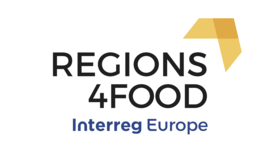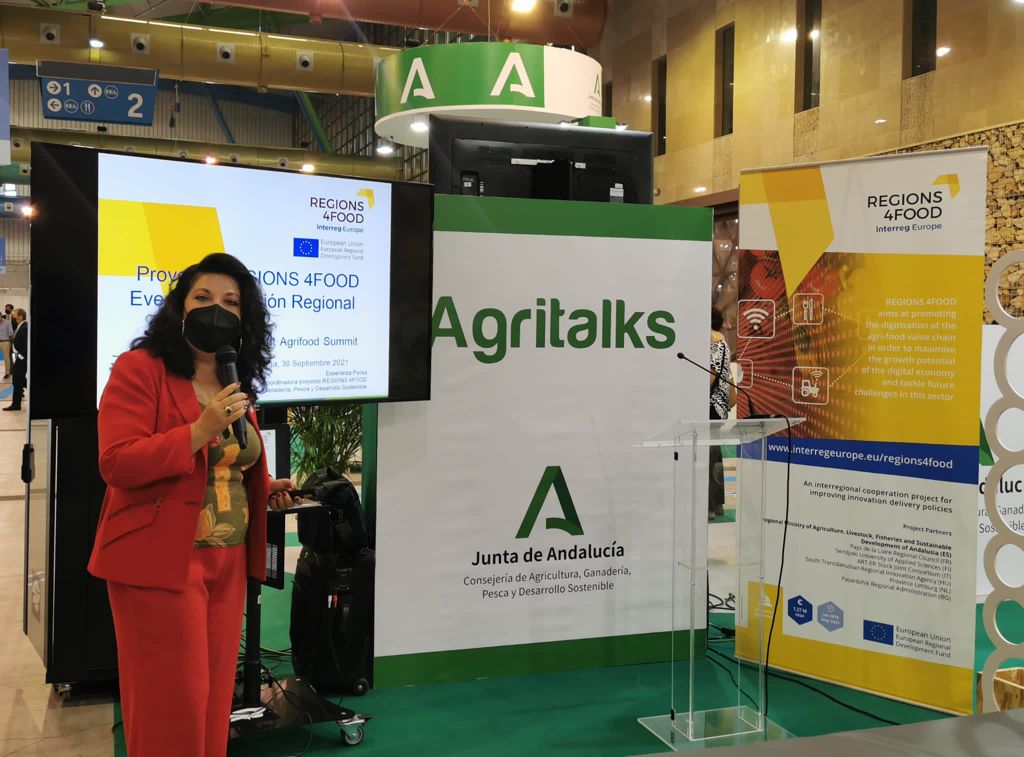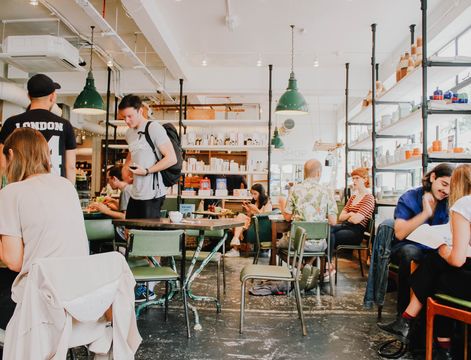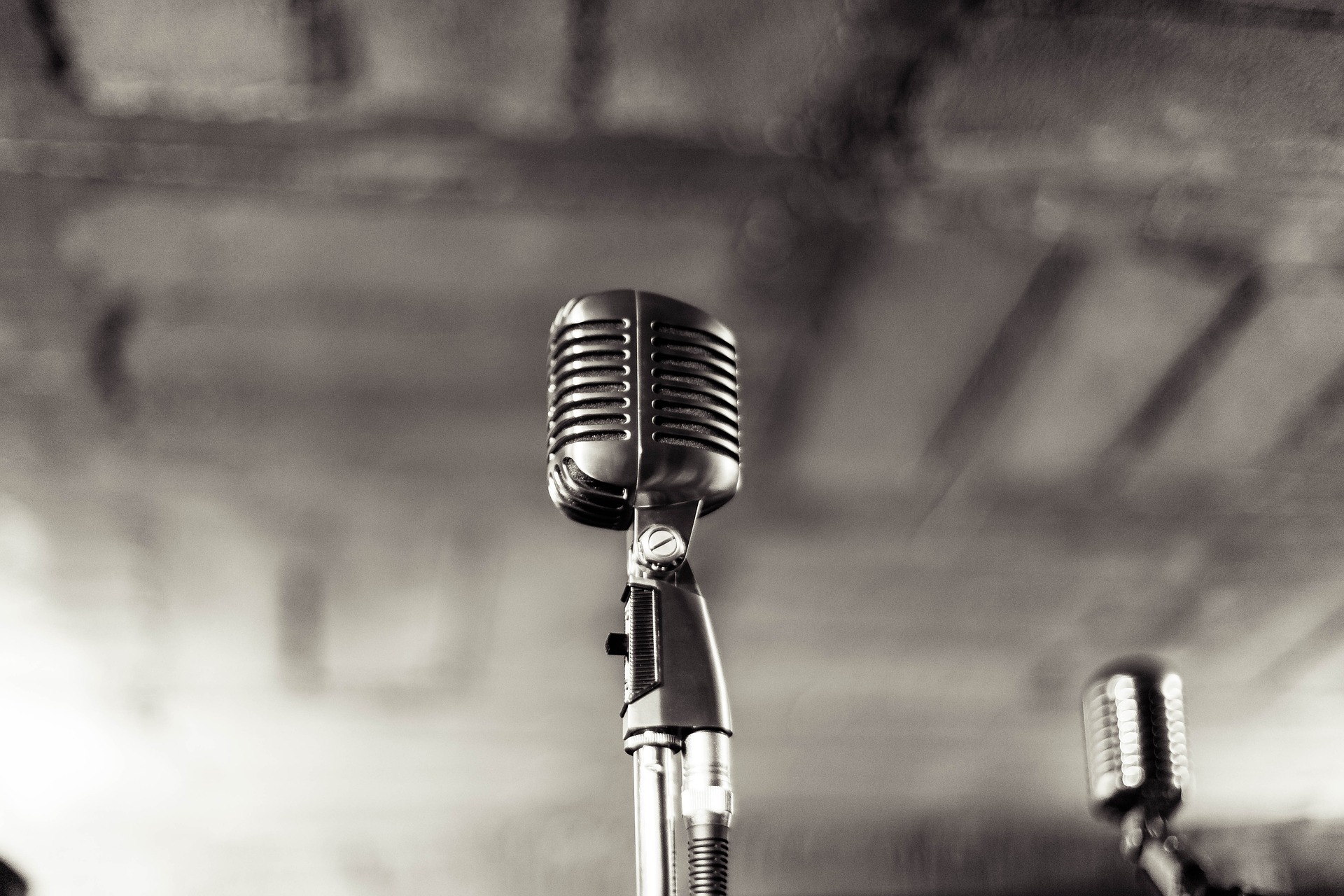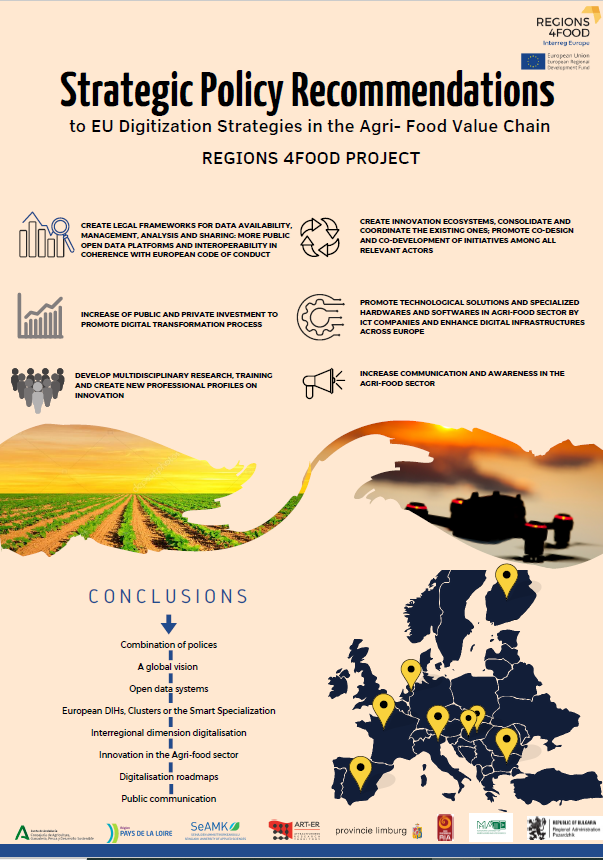In Regions4Food project, semester 3 is all about learning from each other’s Good Practices. In the beginning of September, South Ostrobothnia was in turn to host the visit. Not everyone is going to visit every region, only a few that present the most suitable GP’s to implement for each visiting region. Seinäjoki University of Applied Sciences (SeAMK) from South Ostrobothnia had the joy to host visit for partners and stakeholders from Andalusia, AR-TER/Emilia-Romagna, Pays de la Loire and South Transdanubia.
The Study Visit program took 1,5 days, and included five different GP’s presented from different angles. The participants were welcomed to South Ostrobothnia and Seinäjoki University of Applied Sciences in Thursday morning in the beautiful Frami Campus at Seinäjoki. Mrs. Terhi Junkkari, Dean of School of Food and Agriculture, SeAMK welcomed the quests to the Food Province of Finland. After a short introduction to the Study Visit agenda by Mrs. Soila Huhtaluhta, regional project coordinator of REGIONS 4FOOD project, SeAMK, it was time to get to know the GP’s.
First was presentation of Agro Living Lab and eLiving Lab –projects by Mr. Jussi-Matti Kallio, lecturer from SeAMK and Mrs. Sanna Kankaanpää, development manager from Into Seinäjoki Business development. These EARDF projects are based on cooperation of farmers and local agrotechnology companies, and represent the technical dimension of GP’s. In the GP, a network of farmers was included in the development and testing process of agrotechnology machinery and digital solutions, to benefit both parties and lead to better usability of new technologies. Jussi-Matti and Sanna described the projects, outcomes and experiences of it, and the quests were active to ask questions as hoped, to get a good picture of the GP.
After that, we started the presentation of next GP: Frami Campus and research community in agri-food. This includes key actors of agri-food sector in higher education and RDI, who are committed to working together in tight cooperation to strengthen the local agri-food sector cluster, and make the region visible as the Food Province of Finland. First, we got to visit some of the laboratories and learning environments of Seinäjoki University of Applied Sciences: Digital Factory of School of Technology, just opened Frami Food Lab for Food Processing and Biotechnology, and Prikka learning restaurant of Food and Hospitality. Mrs. Terhi Junkkari, Dean of School of Food and Agriculture presented also SeAMK in numbers and other education. This was followed by deeper sight of R&D activities in the Frami Campus and research community in agri-food by Mrs. Sanna Kankaanpää and Mrs. Anu Portti, project manager from SeAMK. They introduced the background of the cooperation and AB Seinäjoki ERDF cooperation project. We also met other R&D actors in the Campus: in the University Consortium of Seinäjoki we talked with Mr. Juha Alarinta and Mr. Sami Kurki from University of Helsinki, Ruralia-institute. Also Mrs. Merja Högnäsbacka presented shortly the activities of Natural Resources Finland (LUKE). All organisations are important and support each other’s work in agri-food sector R&D in the region.
Since all these actors are in the same campus area Frami, it was easy to walk and say hello also at the Regional Council of South Ostrobothnia, where the project partners were welcomed to South Ostrobothnia by Mr. Antti Saartenoja, Planning Director of Regional Council. He emphasized the importance of interregional cooperation and learning from each other.
After lunch we had a couple more presentations at the campus:
Mr. Jaakko Koskenkorva presented GP ResQ Club mobile app, which is a user-friendly app for restaurants to sell their surplus food to interested consumers in a lower price. This is very easy way to use digitalization to reduce food waste and make the food value chain more sustainable. ResQ Club is always interested in new cities, and Regions4Food partners could be interested in encouraging their actors to this direction of utilizing digitalization.
Next GP was REKO local food market with digital ordering system. Mrs. Hannele Suvanto, who is a local producer and researcher, presented this retail and distribution model, that operates via Facebook. REKO offers customers a way of ordering products directly from the producer, and brings local food producers to food markets, that would not exist otherwise. Pre-ordered products and specific timescale makes this possible even in harsher weather conditions. REKO model is easily implementable to different regions, although funding in the beginning helps.
We also got a video-glimpse of Logmore QR data logger for traceability and food safety in storage and transportation. This is a new, award-winning technology to ensure e.g. the cold chain, and very interesting digital solution for developing actions in food value chains.
End of the first part.
